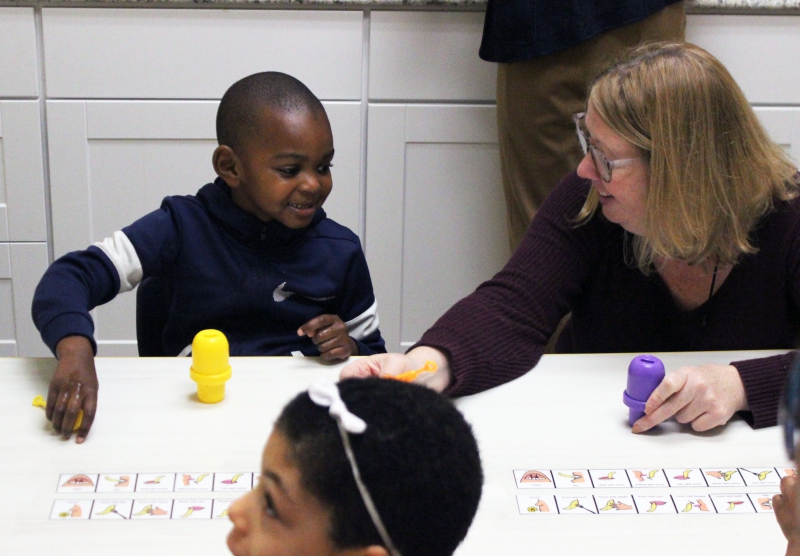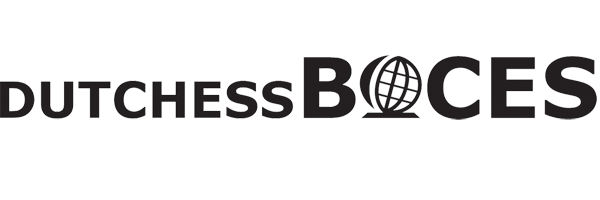 When it comes to trying new foods, students at Dutchess BOCES’ Salt Point Center, take it one chew at a time.
When it comes to trying new foods, students at Dutchess BOCES’ Salt Point Center, take it one chew at a time.
For an hour on Thursday mornings, elementary students, with sensory-based feeding challenges, partake in a feeding therapy program dubbed Chew Crew. The program is designed to help students have positive experiences with foods that are not part of their current repertoire. They get to try fruits, vegetables, and other foods by smelling, touching, and tasting them at their own pace, making it a more enjoyable experience. SPC Speech-Language Pathologist Colleen Nappi finds that children are more resistant to eating certain foods again if they are forced to try it. “They can smell it if they want to and if that’s all they want to do, that’s it,” Nappi said. “It’s a slow process, but it’s an effective process.”
Nappi and SPC Speech-Language Pathologist Sandy Koenig usually start out each session by following a specific routine, which helps to reduce anxiety. They then have students blow bubbles and use water play with sponges to begin preparing their sensory systems for eating, finally moving on to setting up the table with paper plates and plastic forks before trying the foods.
“All of that is very intentional to get them ready for the next step which is the food coming out,” Nappi said. “They’re part of everything.”
Students also have visual aids so they can anticipate what is next. Providing sensory cues, all the way up to tasting food, helps make it a comfortable experience. Koenig said this method is also a great way to measure students’ progress.
“We can build on if they only touch to their lips one day; maybe next time they’re going to touch it to their tongue,” Koenig explained. “You can really see how they’re moving through the steps.”
The most common foods students explore during Chew Crew are fruits and vegetables. During a recent session, students tried clementines, carrots and vegetable chips.
Chew Crew has proven to be successful, as the program has been going strong for 10 years.
“The students really respond well to the therapists’ and peers’ modelling, while exploring the foods together,” Koenig said. “It is a service that makes our program at BOCES unique”.
published Nov. 1. 2022
